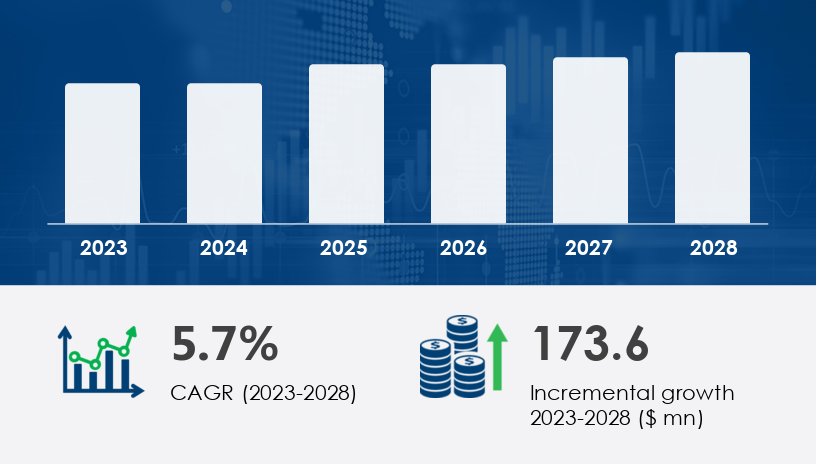The mucus clearance devices market is poised for a USD 173.6 million growth surge by 2028, expanding at a CAGR of 5.7%, fueled by aging populations, chronic respiratory conditions, and a pivot toward patient-centric care. This trajectory signals not just a growth opportunity but a global healthcare priority. In this 2025 Outlook, we deliver a comprehensive guide infused with strategic insights, expert commentary, and data-driven foresight to navigate the evolving dynamics of the mucus clearance devices market.For more details about the industry, get the PDF sample report for free

Mucus clearance devices, also known as airway clearance devices, are essential in treating obstructive respiratory diseases like COPD, asthma, cystic fibrosis, and bronchiectasis. These devices help clear mucus build-up in the lungs — a symptom that affects over 22% of the global population with COPD alone. Their growing use across homecare, hospitals, and ambulatory care settings reflects a shift toward decentralized, patient-managed respiratory care.
A global increase in respiratory diseases like asthma, chronic bronchitis, and cystic fibrosis has directly impacted the demand for effective mucus management tools. With aging populations more prone to such diseases, particularly in Europe and North America, hospitals and homecare providers are ramping up device procurement.
Forecast Insight: The COPD and asthma segment alone was valued at USD 230.4 million in 2018, with steady growth projected through 2028.
The rising geriatric population is a critical growth lever. Older adults are more likely to suffer from mucus hypersecretion due to conditions like bronchiectasis and COPD. Consequently, home-based respiratory therapy devices are becoming mainstream.
Case Study:
ElderCare Health Solutions, a US-based homecare company, adopted Philips' airway clearance devices for elderly asthma patients. Within six months, hospital admissions dropped by 32%, and patient satisfaction scores improved significantly.
Smoking, air pollution, and occupational hazards are amplifying mucus-related complications globally. Countries facing high pollution indices, including India and China, are increasingly incorporating mucus clearance devices into national respiratory health programs.
Get more details by ordering the complete report
North America leads with a 43% market share, attributed to:
High prevalence of respiratory diseases
Increased hospital admissions
Presence of major players like Hill Rom and Thayer Medical
Active public-private partnerships (e.g., McArthur Medical Sales and Roxon Medi-Tech)
“The North American market is a perfect storm of innovation, access, and chronic disease burden — a fertile ground for device expansion,” notes Senior Technavio Expert.
Other Regions,
COPD and Asthma: Dominates the market due to its sheer prevalence and progressive nature. Mucus clearance is central to symptom management and hospitalization prevention.
Cystic Fibrosis: A niche but critical segment, particularly among pediatric and young adult patients requiring lifelong airway management.
Others: Includes bronchiectasis and post-surgical respiratory care—areas that are steadily gaining investment.
Patient-centric culture is pushing innovation toward wearable, home-compatible devices.
Clinical trials are validating the efficacy of these tools in reducing DALYs and improving HRQoL.
Healthcare expenditure growth globally is enabling wider access to these solutions, particularly in upper-middle-income economies.
For more details about the industry, get the PDF sample report for free
The Mucus Clearance Devices Market is witnessing steady growth due to rising cases of respiratory disorders requiring advanced mucus clearance device solutions. These devices form a crucial part of airway clearance systems used in therapies involving oscillatory PEP devices, positive expiratory pressure (PEP), and high-frequency chest wall oscillation. Technologies like intrapulmonary percussive ventilation are increasingly used in cystic fibrosis therapy and as a COPD treatment device, making them integral to bronchiectasis management. Devices such as nebulizers for mucus, flutter valve devices, and Acapella devices contribute to effective respiratory therapy equipment. Solutions like vest airway clearance and chest physiotherapy devices support non-invasive mucus removal tools. Innovative lung clearance technology is tailored for effective respiratory mucus clearance, using systems like percussive therapy devices, airway oscillation devices, and mucus thinning devices.
Next-gen devices are integrating with IoT platforms and AI-powered health tracking systems, enabling real-time data collection for doctors and caregivers.
National programs like NIH’s National Asthma Education and Prevention Program (NAEPP) are educating millions about the importance of airway management — driving demand even in underserved communities.
While demand is rising, financial and budget limitations among small and mid-sized hospitals and clinics hinder market penetration. The cost of advanced devices remains a barrier, especially where public insurance coverage is minimal.
Device availability varies significantly between urban and rural centers, and between developed and developing regions. Without affordable and portable models, adoption will remain uneven.
Get more details by ordering the complete report
Invest in R&D for cost-effective, portable, and easy-to-clean devices suitable for low-resource settings.
Partner with public health agencies to include mucus clearance in national health insurance plans.
Educate healthcare providers and patients about long-term benefits, beyond just acute symptom relief.
Adopt value-based pricing models to enable better penetration into small- and mid-tier healthcare facilities.
Analytical developments in the market focus on expanding treatment outcomes for conditions such as chronic bronchitis treatment, through tools like pulmonary rehabilitation devices and asthma management devices. The growing adoption of respiratory care devices and mucus extraction devices supports therapies like lung expansion therapy and airway clearance vest therapy. Technologies such as oscillating positive pressure, mucus clearance therapy, and respiratory support devices drive innovation in this space. Devices like chest compression devices, pulmonary clearance systems, and mucus mobilization devices offer patient-centric care through effective airway clearance therapy and lung mucus removal. Tools including PEP therapy devices, vibratory PEP devices, and mucus clearance systems are aligned with clinical goals for efficient respiratory oscillation devices and chest wall oscillation. This progress is reinforced by emerging mucus clearance equipment, pulmonary therapy devices, and airway mucus clearance tools featuring high-frequency oscillation to enhance therapeutic efficacy.
For more details about the industry, get the PDF sample report for free
With respiratory conditions set to become the third leading cause of death globally, the demand for mucus clearance devices will continue to escalate. Companies that align their strategies with demographic shifts, environmental challenges, and policy directions will secure long-term relevance.
Safe and Secure SSL Encrypted